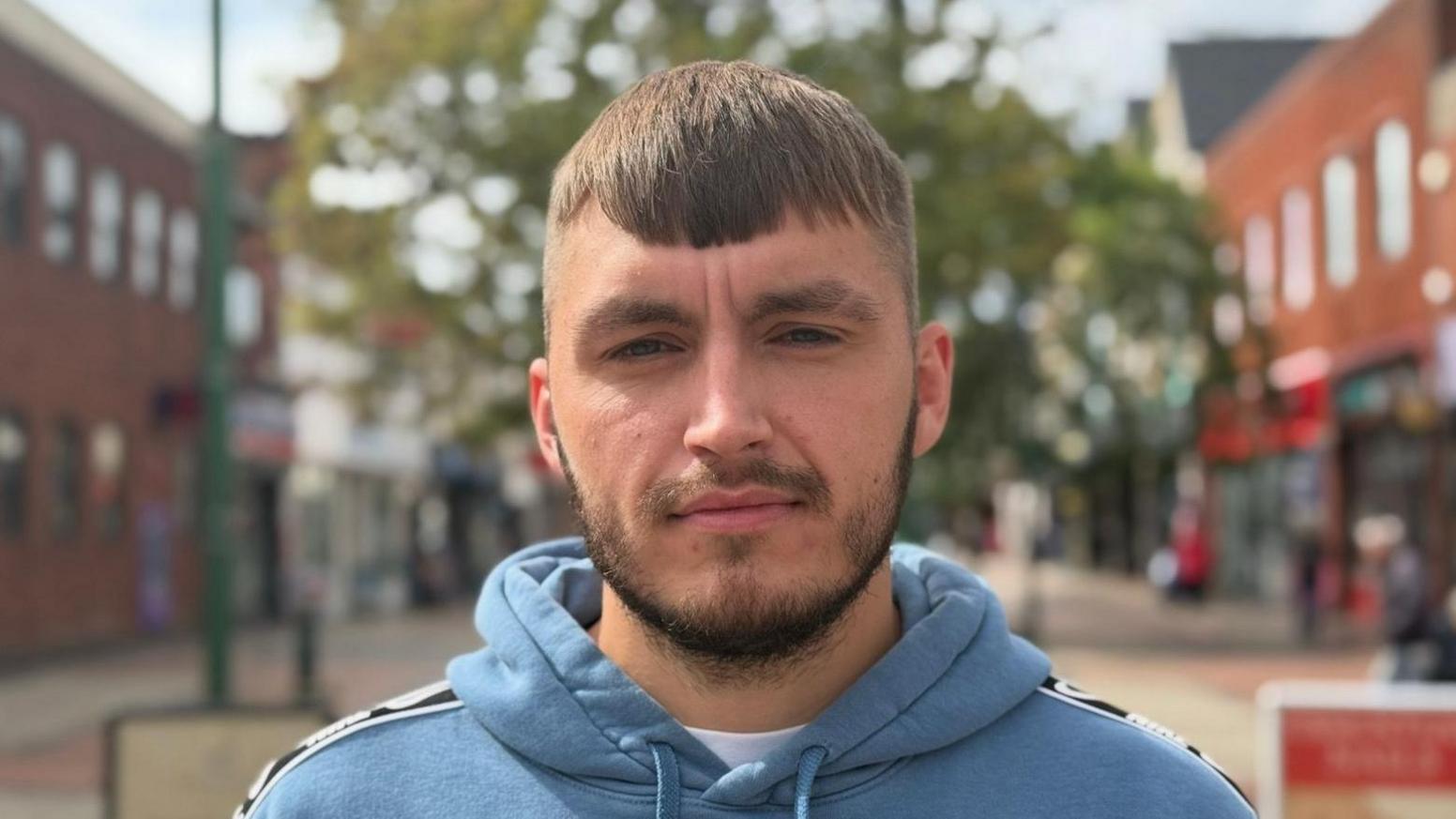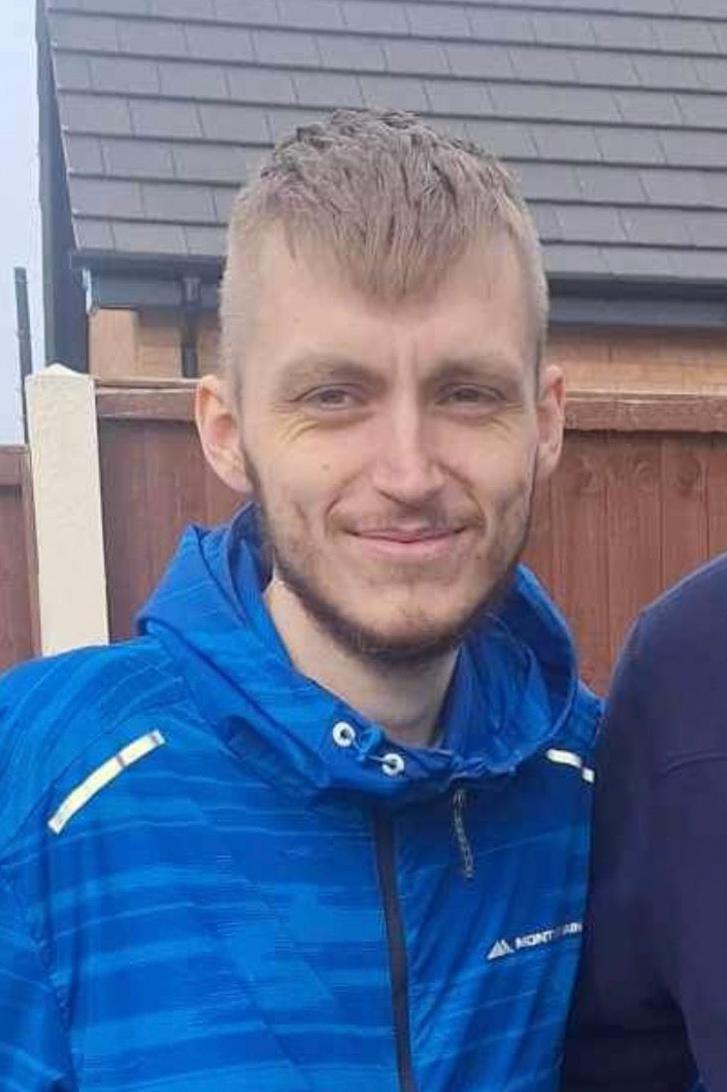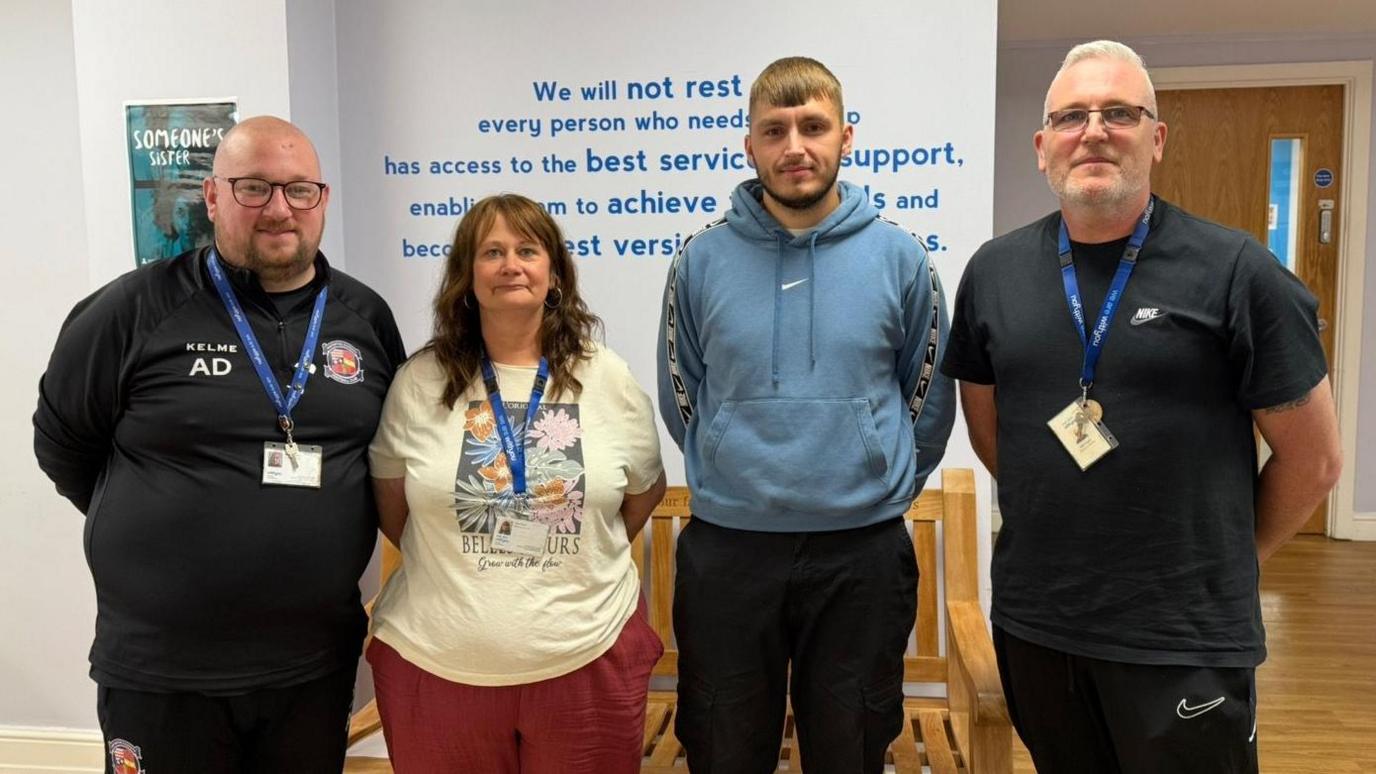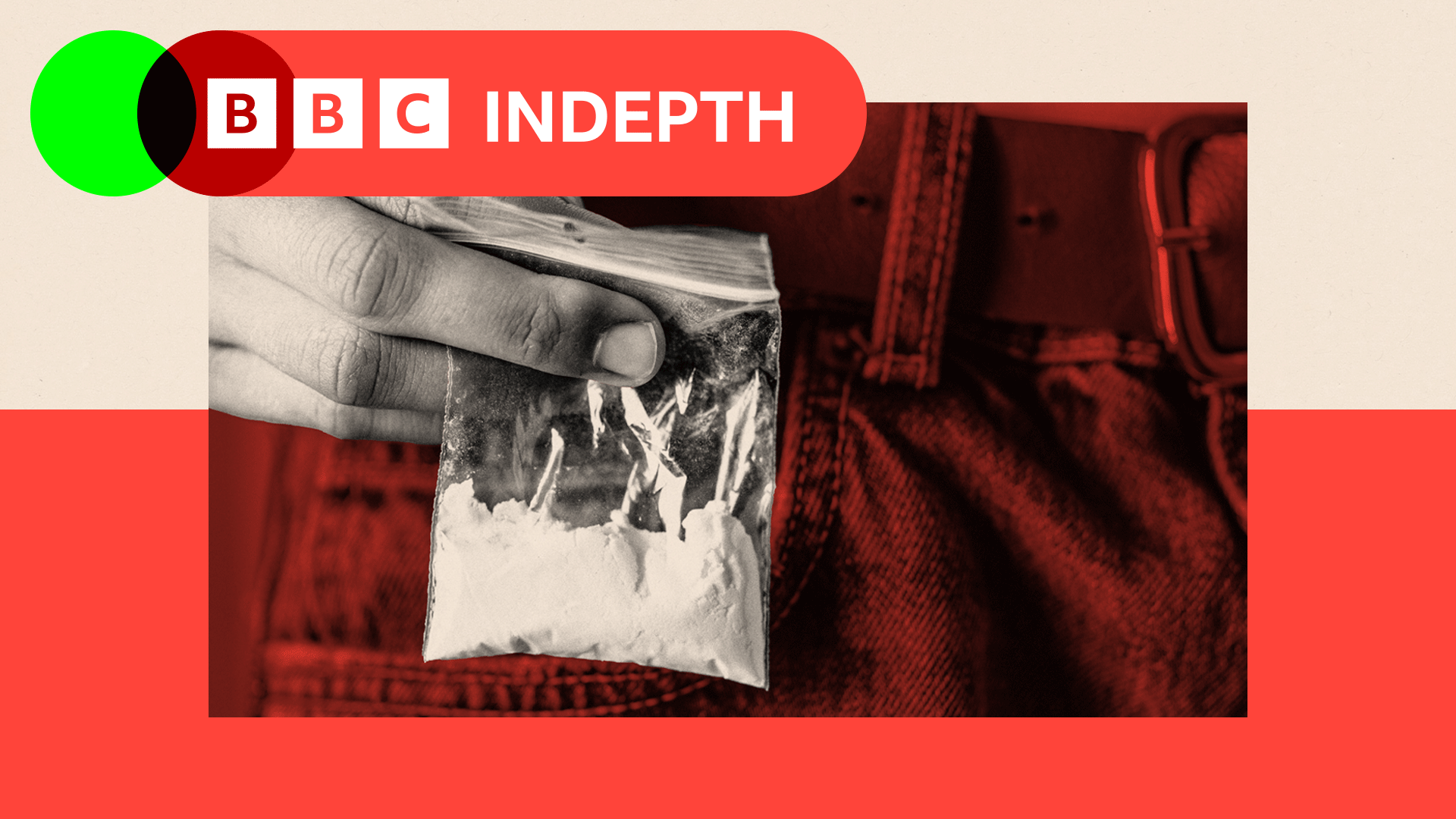'I pretty much accepted ketamine would kill me'

Tom Kirk, 27, has been drug-free for over a year and runs a support group
- Published
At the height of his ketamine addiction, Tom Kirk felt that there was no way out and "pretty much accepted" the drug would kill him.
Tom, from Scunthorpe, was introduced to "ket" at a festival when he was 19. By the age of 25, he was so weak he was unable to walk.
He began to turn his life around thanks to the support service WithYou – and now volunteers for the charity locally.
"I personally didn't think I was strong enough to get out," says Tom. "Support is out there and there are people who will help you. That's their job."
He initially used ketamine at weekends, but began taking it almost every day during the Covid-19 lockdown in 2020.
"I used to say, there's nothing better to do. And there were no consequences to it at the time, so I didn't see it as a problem."
By 2021, however, his health was starting to decline and despite standing 6ft 2in (188cm) tall, his weight had dropped to seven and a half stone.
"My kidneys and my liver were deteriorating rapidly," recalls Tom, now 27.
"I was severely, severely underweight. I didn't have enough strength in my body to walk."

Tom admits he was in denial before requiring hospital treatment
Ketamine is a class B drug widely used by vets on animals and in the NHS as an anaesthetic, sedative and pain reliever.
However, because of its hallucinogenic effects, it is also thought of as a "party drug".
When misused, it can cause serious and sometimes permanent damage to the bladder.
Despite his parents and other family members expressing their concerns, Tom says he was in denial.
"I put my family through a lot. We'd had conversations, but I couldn't physically stop. I was addicted.
"Because ket is such a disassociate, it was taking away my problems."
WithYou provides a confidential service to adults and young people experiencing issues with drugs, alcohol or mental health.
Tom was referred to the charity by his mum in 2022, only to discharge himself.
He reached out to the service again in September 2023, but the following March, he was taken to hospital with a kidney blockage.

Tom (third left) with members of the WithYou team, who have offered "amazing" support
"I was on a ward with a lot of elderly people and I was being seen to the most medically," says Tom.
"All of my mates and everyone I knew was on holiday, enjoying life. And I was unable to move."
The number of adults in England entering treatment for ketamine problems rose from 1,551 in 2021-22 to 3,609 in 2023-24, according to government statistics, external.
Meanwhile, 1,201 under-18s reported problems with ketamine, external in 2023-24, up from 512 two years before.
WithYou provided Tom with personalised support and helped him secure funding for rehab. He has now been alcohol and substance-free for 15 months.
As well as volunteering at the charity, he works with the Scunthorpe Recovery Service – which helps individuals recovering from drug and alcohol dependencies.
He runs a ketamine support group on Saturdays and hopes people will learn from his experience.
'World of drugs'
"I hope people know it's possible to recover. I didn't know anyone that had," he says.
"I was stuck in my own head, stuck in the world of drugs. I thought, there's no way out of this. I had pretty much accepted it would kill me."
"All it takes is one phone call, and a referral, and it can save your life."
According to WithYou, the number of young people it supports nationwide for ketamine use has more than doubled over five years, from 213 in 2019-20 to 478 in 2024-25. This includes a 64% rise in Lincolnshire.
Grace Willsher, the charity's head of young people service delivery in the north, says they service is seeing "high numbers" of young people using ketamine.
"But that's matched with young people accessing treatment, which I do see as a positive thing," she adds.
"It means we've got the right support for young people at the right time."
If you are affected by the issues raised in this story, you can visit the BBC Action Line for support.
Listen to highlights from Lincolnshire on BBC Sounds, watch the latest episode of Look North or tell us about a story you think we should be covering here, external.
Download the BBC News app from the App Store, external for iPhone and iPad or Google Play, external for Android devices
Related topics
- Published25 February

- Published15 November 2024

